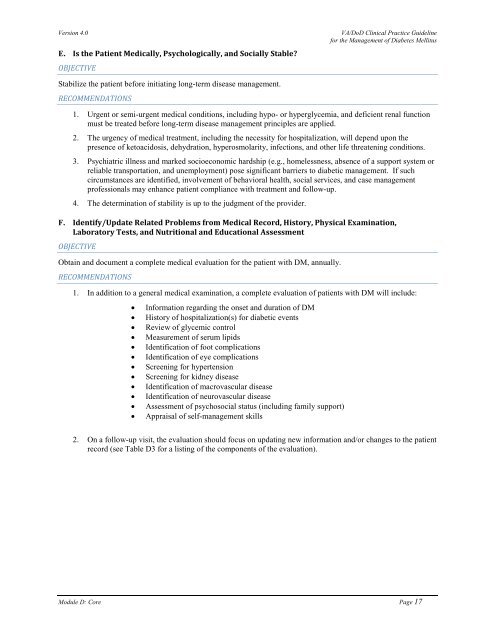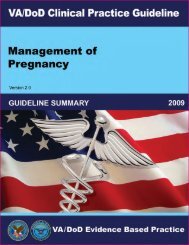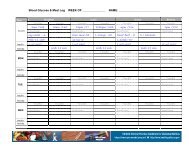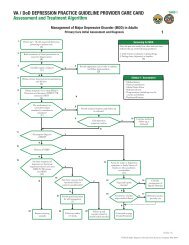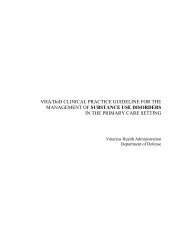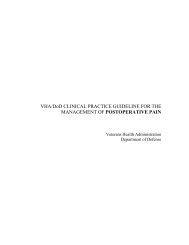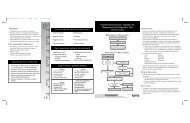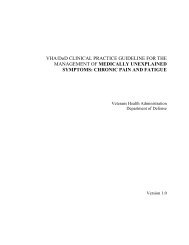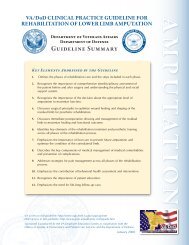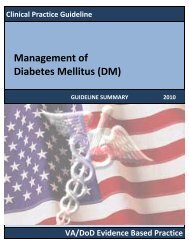DM Full Guideline (2010) - VA/DoD Clinical Practice Guidelines Home
DM Full Guideline (2010) - VA/DoD Clinical Practice Guidelines Home
DM Full Guideline (2010) - VA/DoD Clinical Practice Guidelines Home
Create successful ePaper yourself
Turn your PDF publications into a flip-book with our unique Google optimized e-Paper software.
Version 4.0<br />
E. Is the Patient Medically, Psychologically, and Socially Stable?<br />
OBJECTIVE<br />
<strong>VA</strong>/<strong>DoD</strong> <strong>Clinical</strong> <strong>Practice</strong> <strong>Guideline</strong><br />
for the Management of Diabetes Mellitus<br />
Stabilize the patient before initiating long-term disease management.<br />
RECOMMENDATIONS<br />
1. Urgent or semi-urgent medical conditions, including hypo- or hyperglycemia, and deficient renal function<br />
must be treated before long-term disease management principles are applied.<br />
2. The urgency of medical treatment, including the necessity for hospitalization, will depend upon the<br />
presence of ketoacidosis, dehydration, hyperosmolarity, infections, and other life threatening conditions.<br />
3. Psychiatric illness and marked socioeconomic hardship (e.g., homelessness, absence of a support system or<br />
reliable transportation, and unemployment) pose significant barriers to diabetic management. If such<br />
circumstances are identified, involvement of behavioral health, social services, and case management<br />
professionals may enhance patient compliance with treatment and follow-up.<br />
4. The determination of stability is up to the judgment of the provider.<br />
F. Identify/Update Related Problems from Medical Record, History, Physical Examination,<br />
Laboratory Tests, and Nutritional and Educational Assessment<br />
OBJECTIVE<br />
Obtain and document a complete medical evaluation for the patient with <strong>DM</strong>, annually.<br />
RECOMMENDATIONS<br />
1. In addition to a general medical examination, a complete evaluation of patients with <strong>DM</strong> will include:<br />
• Information regarding the onset and duration of <strong>DM</strong><br />
• History of hospitalization(s) for diabetic events<br />
• Review of glycemic control<br />
• Measurement of serum lipids<br />
• Identification of foot complications<br />
• Identification of eye complications<br />
• Screening for hypertension<br />
• Screening for kidney disease<br />
• Identification of macrovascular disease<br />
• Identification of neurovascular disease<br />
• Assessment of psychosocial status (including family support)<br />
• Appraisal of self-management skills<br />
2. On a follow-up visit, the evaluation should focus on updating new information and/or changes to the patient<br />
record (see Table D3 for a listing of the components of the evaluation).<br />
Module D: Core Page 17


